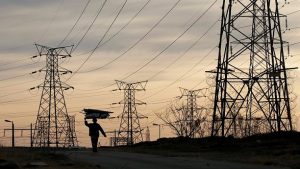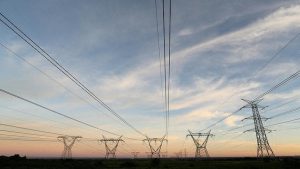The South African economy is still suffering as a result of rolling power outages. According to economists, load shedding in its various forms costs the economy money on a daily basis.
The erratic power supply has a negative impact on economic growth. Economists say the economy requires certainty and predictability.
Eskom on Wednesday says it’s working towards lifting rolling blackouts by the weekend. It warns that its generation system remains vulnerable and unpredictable.
But it seems the current power challenges are likely to continue as Eskom says its generation system remains unreliable and unpredictable.
Pan-African Investment and Research Services’ Dr Iraj Abedian says, “The fact that it is now going year 14 or 13 that the government has shown an inability to solve the problem is a major concern. It undermines the citizen’s confidence; it undermines the credibility of the government and its competence. And it’s not good either citizen or for the investors – be they local, be they foreign, it’s very, very difficult to plan businesses and run when you don’t know when and how the disruption is going to happen.”
Eskom has again apologised for the inconvenience the blackouts have caused to the economy and the country as a whole. The power utility says it’s working around the clock to ensure that the lights are kept on.
Eskom CEO Andre De Ruyter says, “We wish to issue an apology to the country for the load shedding that we unavoidably have to impose in order to prevent much greater inconvenience and risk of a total system blackout. Our teams are very engaged and motivated, They understand the implications for the country, for the economy and they are working hard to bring those units back.”
Eskom Group Chief Executive André de Ruyter to brief the media on the current system challenges:
‘Cost to consumers high and disruptive’
And the rising electricity costs, coupled with the rolling blackouts are likely to hit pressured consumers hard. Economists say the total cost of expenditure for consumers is high and disruptive.
“Consumers get it double bammy. First, price of energy goes up. Second, inflation goes up and followed by the rising interest rate which again complicates the cost of living,” says Abedian.
Eskom says it’s taking steps to ensure there’s no total blackout. It says it has systems in place to ensure that there’s power in the country. But it admits that there’s a slim chance that the country may get to that stage.
Load shedding reduced to Stage 3
Eskom says load shedding will be reduced to Stage 3 from 10 o’clock on Wednesday night following a recovery of some of its generation units.
Eskom spokesperson Sikhonathi Mantshantsha says, “Having returned to service six generation units over the past 24 hours, and with three more units set to return tomorrow. Eskom is pleased to be able to reduce the implementation of load shedding to Stage 3 starting at 22:00 tonight.”
Rolling Blackouts | Unpacking Eskom troubles with Lungile Mashele






